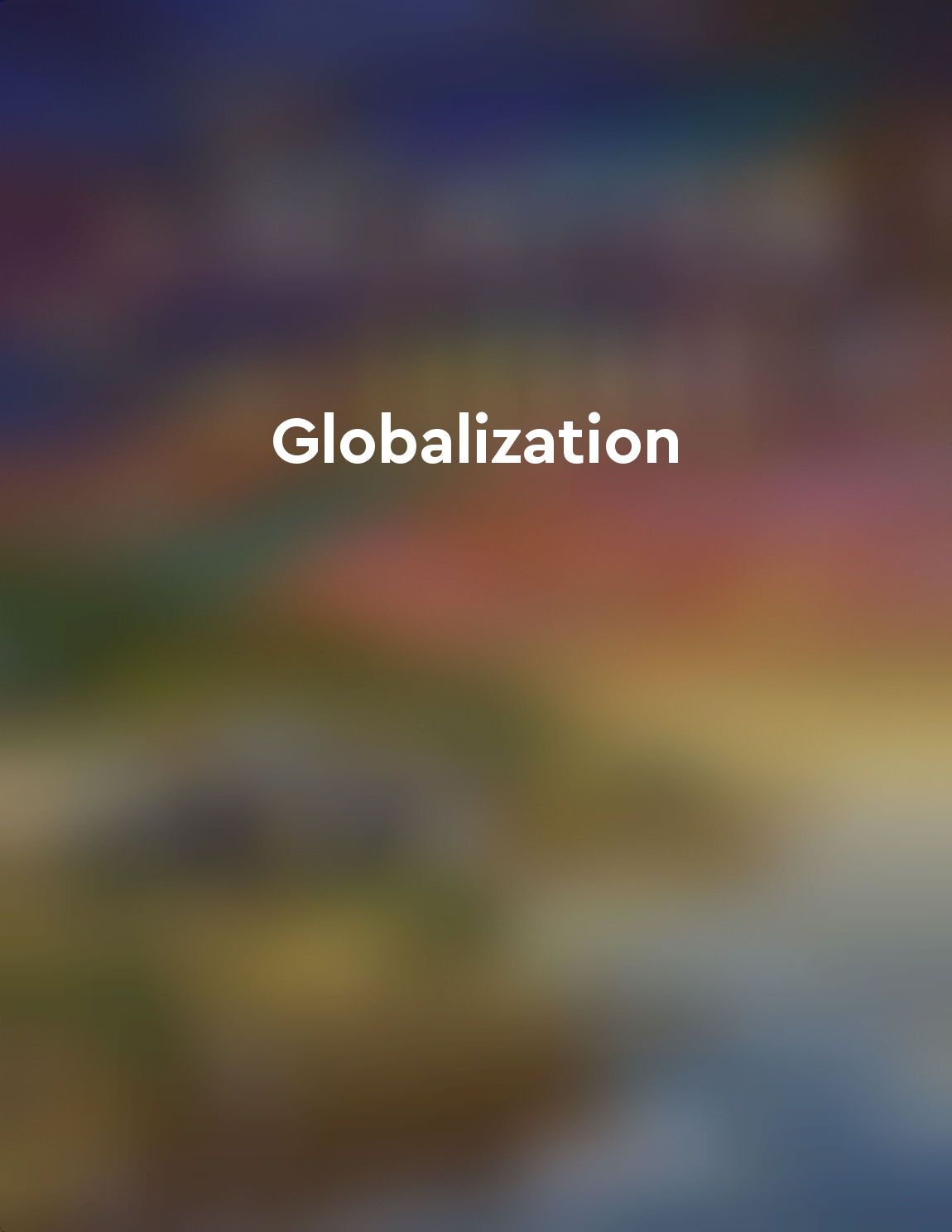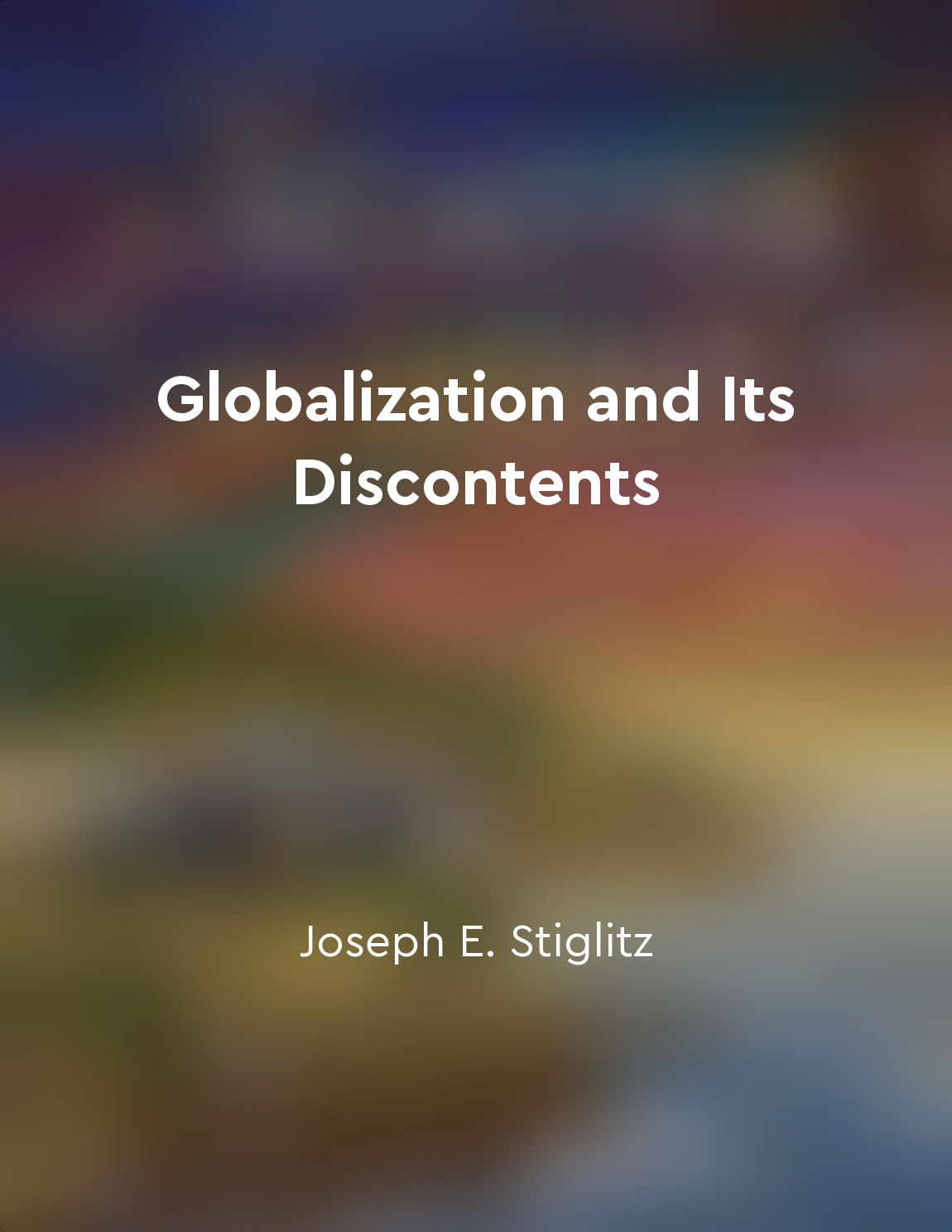Globalization has both benefits and challenges from "summary" of Economic Development by Michael P. Todaro,Stephen C. Smith
Globalization, the process of increasing interconnectedness and interdependence among countries, has brought about a myriad of both positive and negative consequences. On one hand, globalization has facilitated the flow of goods, services, capital, and ideas across borders, leading to increased economic growth and development in many parts of the world. The opening up of markets has allowed for greater efficiency and specialization, leading to higher levels of productivity and competitiveness. Moreover, globalization has enabled developing countries to attract foreign investment, technology, and expertise, which can help stimulate economic growth and create employment opportunities. Foreign direct investment, in particular, can bring in much-needed capital and knowledge that may not be available domestically. Additionally, globalization has fostered cultural exchange and understanding, as people from different parts of the world interact and learn from each other's traditions, beliefs, and practices. However, globalization also presents several challenges that must be carefully managed. One of the main concerns is the potential for increased inequality, both within and between countries. While globalization can create wealth and opportunities for some, it can also lead to marginalization and exclusion for others, especially those who lack the skills or resources to compete in a globalized economy. This can exacerbate social tensions and instability, further widening the gap between the haves and the have-nots. Furthermore, globalization has been associated with environmental degradation and resource depletion, as increased economic activity and consumption levels put a strain on the planet's finite resources. The pursuit of economic growth at all costs can lead to unsustainable practices that harm the environment and jeopardize the well-being of future generations. Climate change, pollution, deforestation, and loss of biodiversity are some of the consequences of unchecked globalization that pose serious threats to the planet and its inhabitants.- While globalization has the potential to bring about significant benefits in terms of economic development and cultural exchange, it also poses challenges that must be addressed to ensure a more sustainable and equitable future for all. By recognizing and mitigating the negative impacts of globalization, policymakers can harness its potential for positive change and create a more inclusive and resilient global economy.
Similar Posts
Government regulations
Government regulations are often seen as a way to protect consumers, workers, and the environment from harm. However, these reg...

Disruption became the new norm in the business world
The business world was once a place where companies could operate steadily without much fear of sudden changes. However, this s...

Growth of multinational corporations
Multinational corporations have become a dominant force in the global economy, with their presence felt across various industri...

The pursuit of profit often comes at the expense of social and environmental wellbeing
The relentless pursuit of profit, the driving force behind the modern global economy, frequently leads to negative consequences...

Cultural dynamics shape global politics
The political history of the world is not merely a story of kings and wars, treaties and revolutions. It is also a narrative of...

